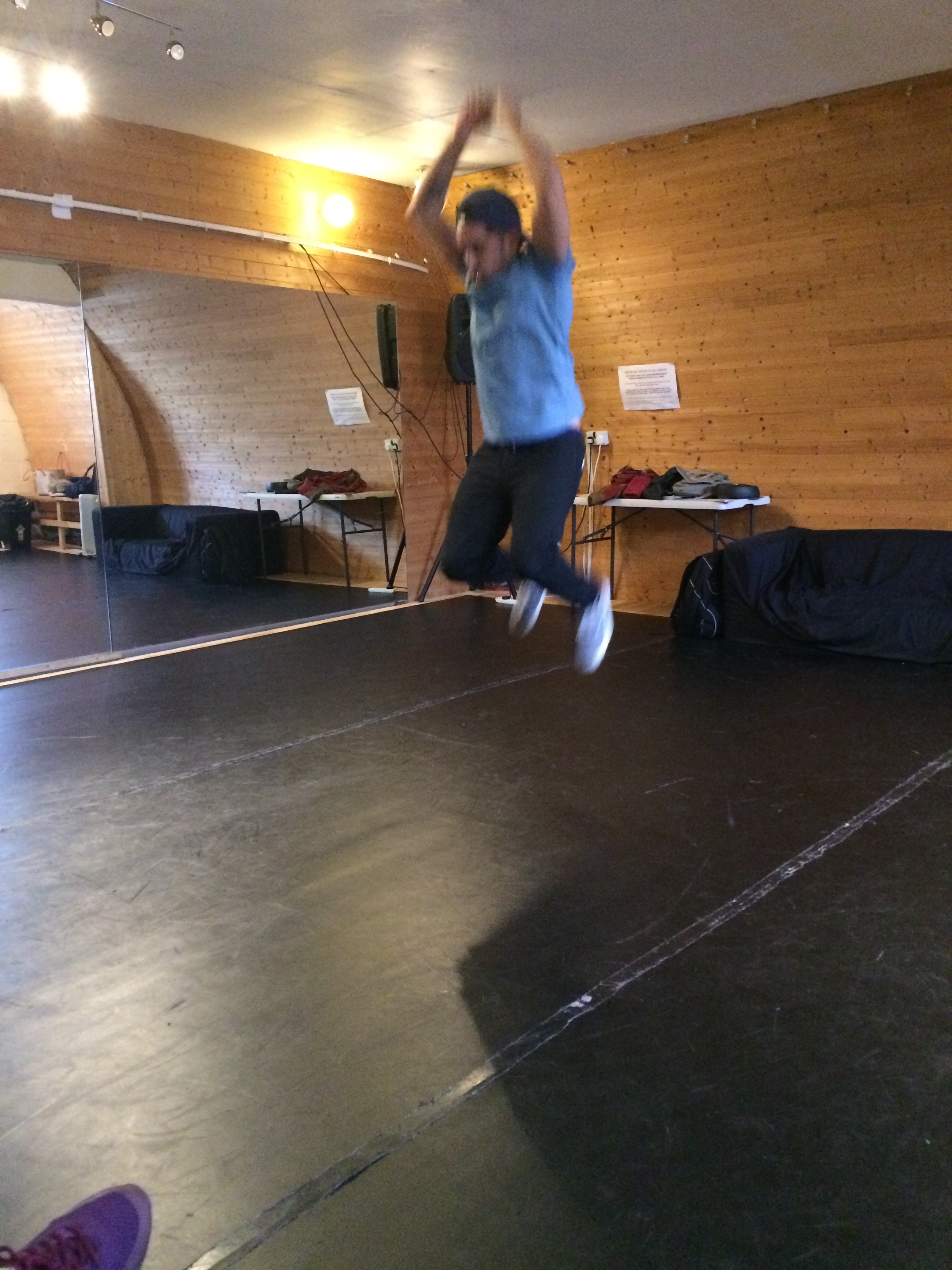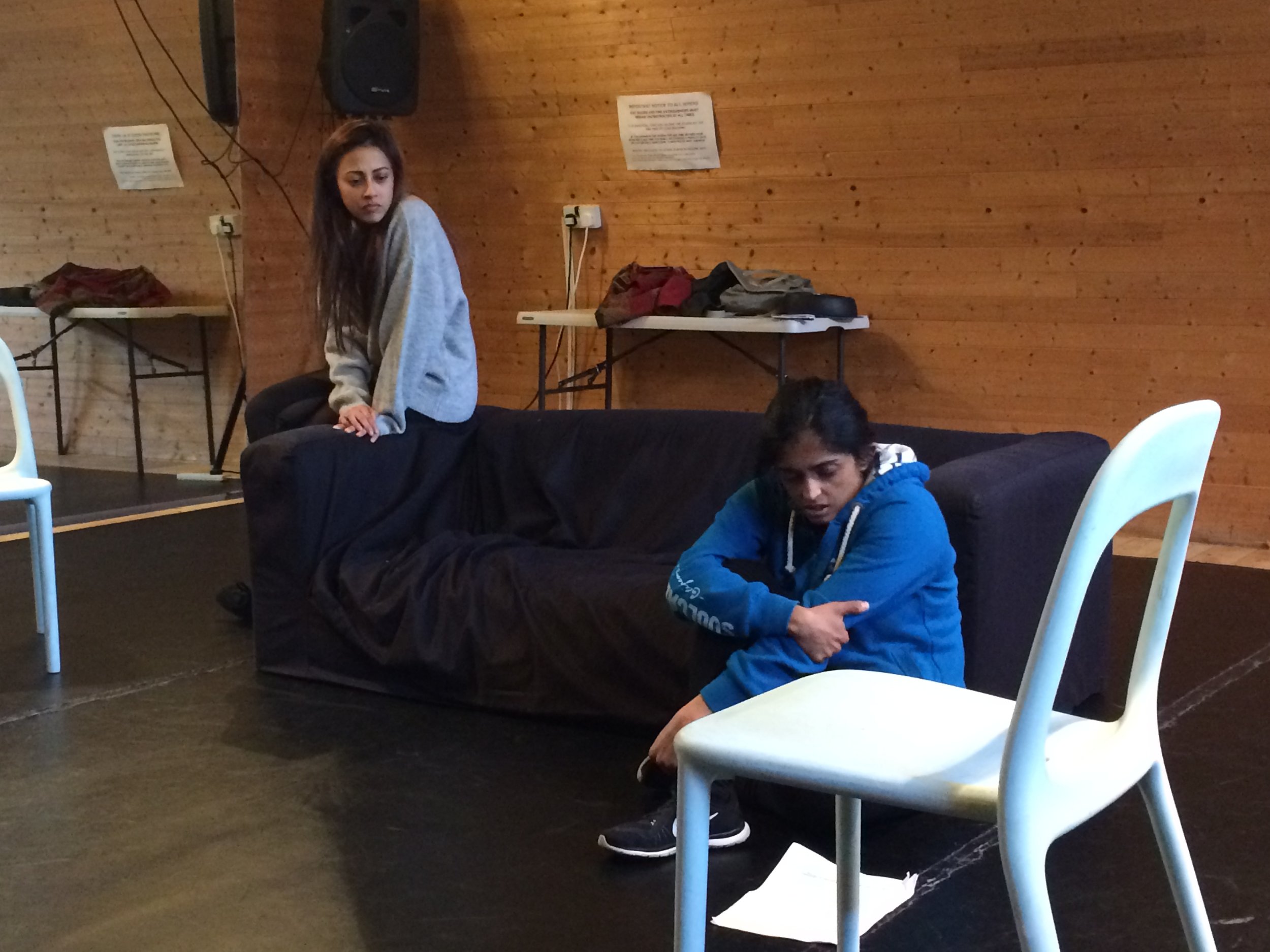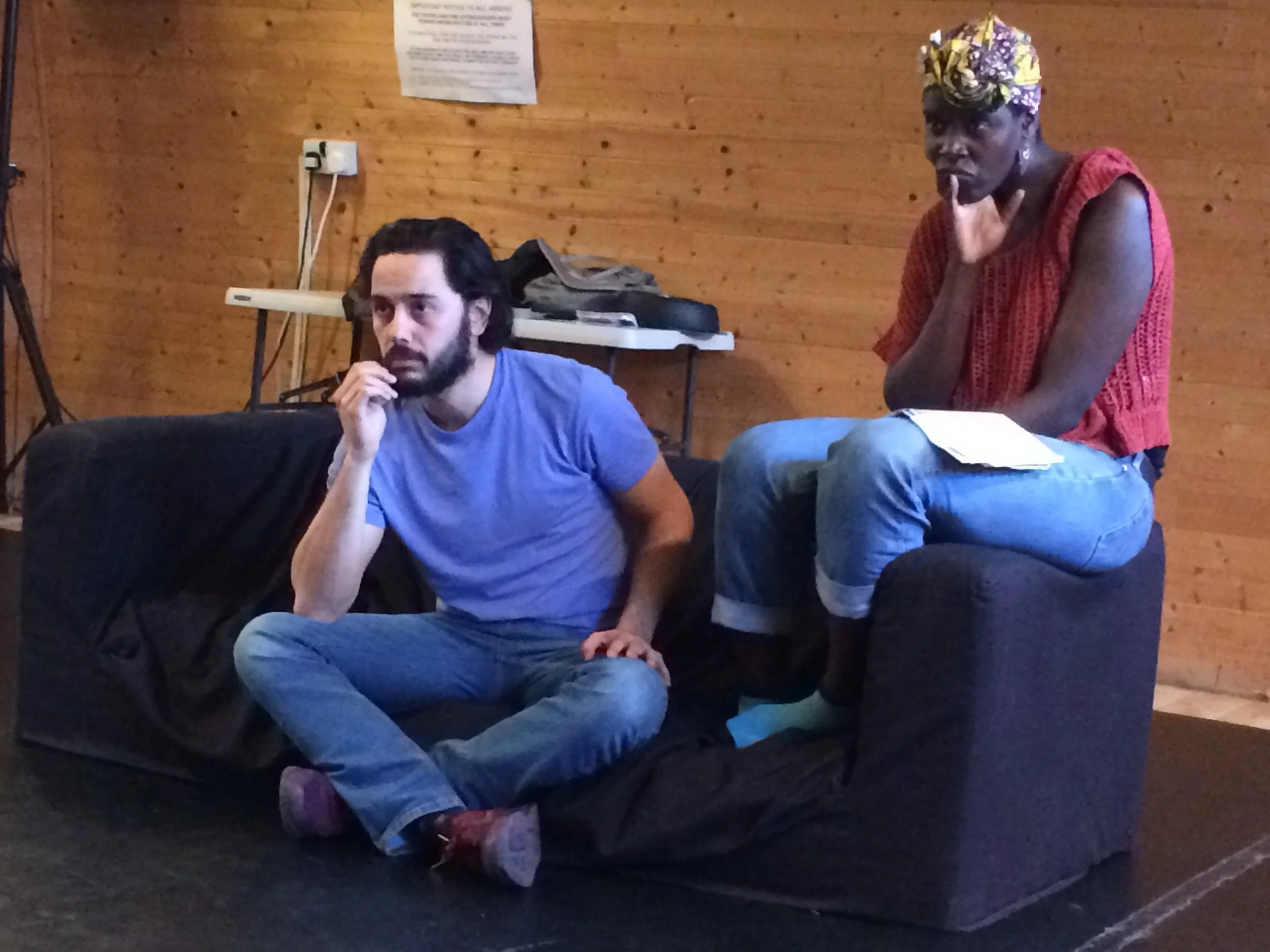TDA Intracultural Practice Masterclass with Kristine Landon-Smith
3rd - 7th April 2017
Kristine Landon-Smith (MPhil), led a week long masterclass for actors seeking to enhance their artform. During the course, Kristine worked closely with each individual in the ensemble and applied her acclaimed intracultural methodology to classic and contemporary texts.
Student Reflection 1
I recently did Kristine's week long TDA Intracultural Masterclass, and found it hugely useful as an actor to approach my work and the text in a way I've not known of before. The theme of the week was to encourage us to be playful and open in our approach to text while bringing the fullness of our own identity to the stage. We started off every day with a high energy game of volleyball and continued to intersperse the class and exercises with other games like 'tag' and 'grandma's footsteps'. All these games had an ability to open us up as actors. While playing these games I felt alive and wholly present in the room. When playing a game and having to deliver text at the same time, the text sort of 'fell out' of me in an expression of the text that didn't have the time to be filtered through my 'analysis' of how the text 'should be said' or of my pre-determined decisions about the text, but instead allowed me to express the text in an open and "in the moment" way. It allowed me to not even think about the text, to just be me, in this moment, playing this game, and then allowing the text surprise even me. I must admit that this is definitely something that needs ongoing practice and continuous awareness of, like strengthening a muscle that I previously was unaware of. In the beginning it was hard for me to gauge how I went from 'closed' to 'open', let alone how to stay 'open'. By the end of the week I felt I was just starting to sense it.
This is same way I felt about our work on 'complicité': working as an ensemble by being sensitive, open, and listening. The power of 'complicité' was like magic on stage, when it worked; being so in tune with the other actor, giving attention to the collective and the other gave way to creating beautiful moments.
The idea of bringing the text to me, rather than going to the text was liberating, especially when bringing elements of my cultural heritage into the game or improvisation. I have never used my cultural heritage as a way to work with text (unless it was specifically part of the text), or as an exercise in improvisation around the text. I was amazed by how this practice opened up another side of my personality that previously never got time to play on stage. When I think and speak in Gujarati, I feel instantly connected to my family and relatives and community background that is so important to my life. I did an improvised exercise in Gujarati with my classmate Dixita where she discussed with me her worries about a younger girl fancying a man she also secretly fancied. It was an improvised version of a Chekhov monologue. Improvising in Gujarati instantly released within me a range of vernacular, gestures, and attitudes which felt more natural and more authentic. Dixita also commented that our conversation in Gujarati sparked back and forth naturally because of the familiarity of the situation. I also felt that from this familiar chat, my instincts arose naturally, from a place of experience and depth. I felt the improvisation, as a result, flowed naturally and authentically. This exercise really opened my eyes to how the context of classical text can be brought into my sphere of identity, instead of having to go to the text.
Using the languages I had at my disposal on stage to create ideas, develop text and further play on stage in different ways was thoroughly enjoyable. I was delighted to see how I could feel so totally different simply by speaking another language. The knock-on effect of that was again that the expression of my voice and body were all different, but all authentic versions of me. When I spoke Spanish, even though it's not wholly fluent anymore, it took me back to a part of my life when I lived in Spain, and my body and gestures naturally flowed from my "Spanish self" which I particularly noticed the difference in, since I haven't accessed that part of myself in many years. The character of the Spanish old lady was fun and playful and took me out of my inhibited self.
I thoroughly enjoyed Kristine's masterclass and hope that there will be more in the future to develop these skills further. One last note on the class would be on how there was another sense of belonging and richness to the class. In all the acting training and classrooms I have been in, I have always been the only Asian or oftentimes the only ethnic minority in the room. Working with such an ethnically diverse group, with others who speak and understand Gujarati or understand my cultural context, or I understand theirs, is to perform and play in a more intimate and honest space than I've previously experienced. Funny, I wasn't conscious of the value of it until it became apparent in the masterclass and we ultimately harnessed the power of it.
Komal Amin participant KLS Tamasha Developing Artists Masterclass
Reflection 2
I have done a number of courses with Kristine looking at intracultural practice in acting. It had been a year or two since my last workshop and boy could you tell. I found the week hard because I knew what to expect. I knew how open I can be but felt massively out of practice. So striving towards something and not quite being able to get there as independently as I would have liked was frustrating.
Each workshop always throws up a seeming anomaly- for me to then reflect and figure out. This one was my complicité and pleasure to play whilst in the worst Glaswegian accent known to man or woman. In this strange voice I found a wave, a pleasure and ease of flow with the Hamlet text I was working on. Something I had first discovered with my Ugandan accent. At least the UG accent made sense - it was my home accent, a native voice that held a deep truth. Though this Glaswegian attempt was totally alien to me. In reflection all I can conclude at present is that my own English voice is so traumatised from the abuse of the dominant patriarchal system that anything else has immediately less baggage and is therefore easier to access the pleasure to play and complicité needed to ride the wave of artistic creativity and artistry.
The exercises, clowning, working towards complicité was refreshing and oh so so so useful to revisit. This is a practice and therefore needs to be done on a regular basis.
Anna-Maria Nabirye
Reflection 3
I thoroughly enjoyed my week observing Kristine's masterclass. Her intracultural methodology felt like a breath of fresh air and a remedy to tired and inflexible ways of working that I have seen in the past. It was refreshing to experience an approach that does away with assumptions of how an actor or a text should be and instead invites multiple references and personal histories into the work with a sense of play and attention to the needs and background of each actor.
I found her work with the actors sensitive and meaningful and I am excited to take some of the techniques and tools learnt into my own rehearsal room.
Olivia Furber, Auditor on Masterclass


